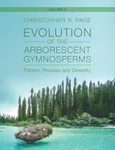![Writing in the Environmental Sciences Writing in the Environmental Sciences]()
Click to have a closer look
About this book
Contents
Customer reviews
Biography
Related titles
About this book
As an environmental scientist, you are used to writing scientific articles, but how confident do you feel writing policy or regulatory documents? Do you feel you have the necessary writing skills to influence policy and inform the public? This refreshingly clear guide provides environmental scientists and conservation professionals with an effective writing process that can be applied in a range of financial, political, or organisational contexts. Baker outlines a replicable seven-step writing formula based on practical experience that acknowledges the complexities inherent in the worlds of endangered species, habitat conservation, and recovery planning. Using the formula, scientists will be able to communicate confidently and successfully with a multitude of audiences. Baker's guide is written for scientists, not professional writers. In it, best practices abound. Practical examples, strategies, and diagrams guide the reader at every step, and selected resources are provided for further reference.
Contents
Preface
Introduction
Step 1. Laying the foundation
Step 2. Exploring
Step 3. Arranging
Step 4. Selecting a writing style
Step 5. Crafting
Step 6. Revising
Step 7. Polishing
Conclusion
Appendix A: the 7 steps to writing with clarity
Appendix B: environmental research databases
Appendix C: sample style guide checklist
Appendix D: writing resources for long-term professional development
Appendix E: non-English related writing skills
References
Customer Reviews
Biography
L. Michelle Baker is the founder of Conservation Writing Pro, which she established to help environmental scientists communicate their message and achieve their conservation goals. She gained a PhD in English Language and Literature from the Catholic University of America, Washington DC, in 2008. She has developed courses and tools based on extensive experience teaching college students and training environmental scientists from government agencies including the United States Fish and Wildlife Service, and the United States Geological Survey, as well as various non-government organisations.




































